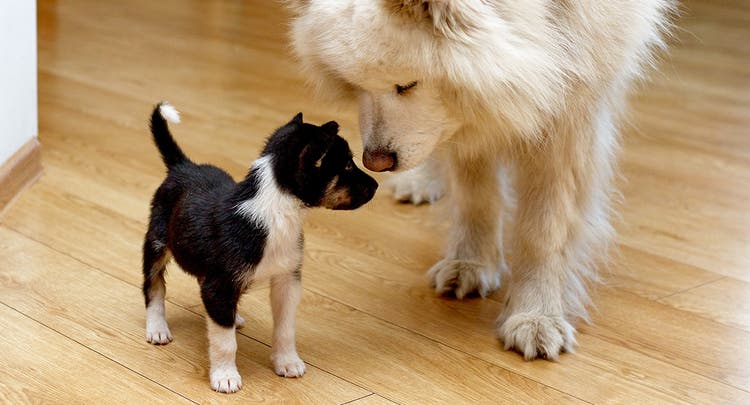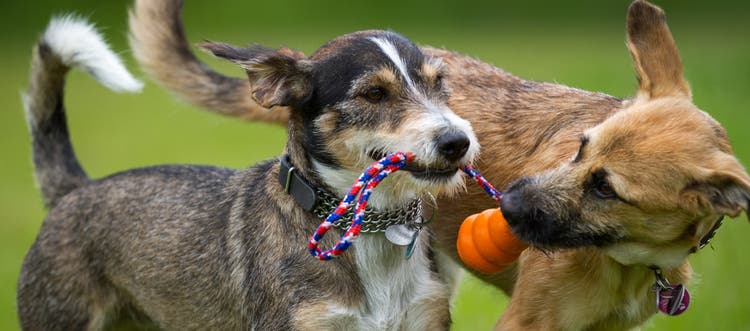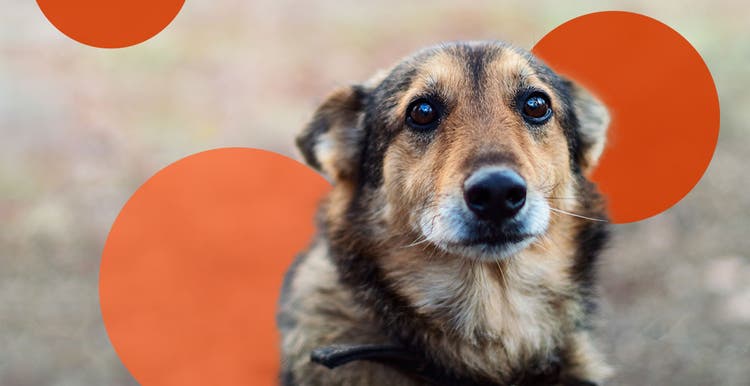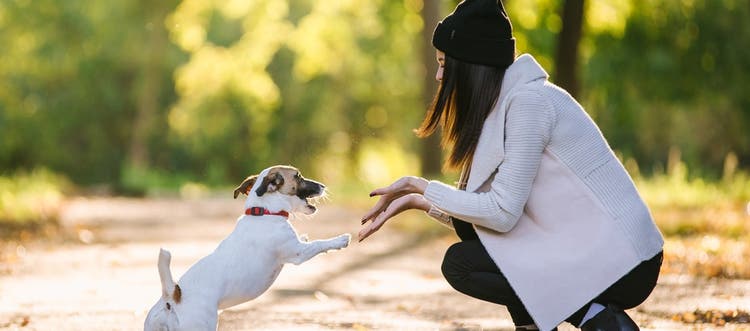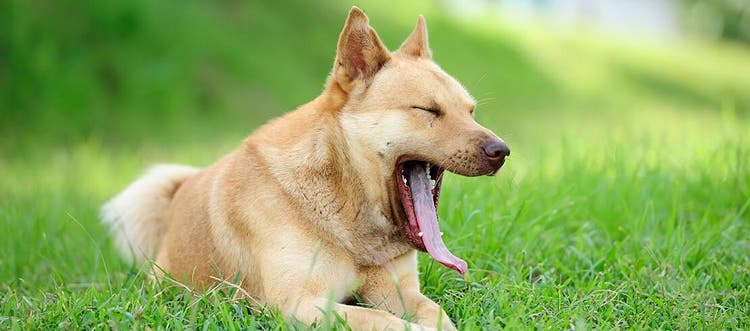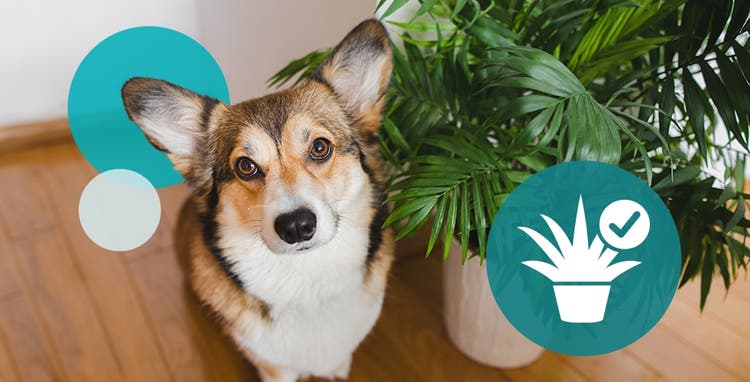Checklist for puppy socialization.
You may wonder why some dogs are so sweet and calm while others have ongoing behavioral issues. Socializing your puppy at a young age plays a key role in their personality later in life.
The first four months of a dog's life are a critical time in their development. This is when dogs learn what is acceptable during interactions with both other dogs and humans. Here's what you need to know about how to socialize a puppy.
When Should I Start Socializing My Puppy?
The American Veterinary Society of Animal Behavior (AVSAB) recommends owners begin socializing their puppy when the puppy is 7 to 8 weeks old. Contrary to popular belief, you don’t need to wait until your puppy is completely vaccinated to begin socialization.
It may seem counterintuitive to socialize your puppy before they’ve had all their vaccinations, but keep in mind the development period between 8 and 16 weeks impacts the rest of your dog's life. Many vaccination protocols aren’t completed until the 16th week when puppies are given their rabies vaccine — and the crucial development window has passed. Just make sure your puppy has received at least one vaccine and deworming treatment seven or more days before beginning socialization.
How to Socialize a Puppy
Only expose your puppy to healthy, vaccinated dogs and people you know. Keep your puppy in low-risk environments initially; caution is key.
Talk to your vet to get a thorough list of what you can expose your dog to, and think about keeping a puppy socialization checklist. Consider different environments, such as cities and bodies of water, other animals, various types of flooring and surfaces, and vehicles such as cars, bikes and skateboards.
Here are more tips for socializing your puppy:
- Start at home and take it slow. Encourage the entire family to participate as you introduce the puppy to new objects and people. Play dress-up with sunglasses, hats and umbrellas so they become acclimated to unfamiliar sights. After the dog gets used to the family, invite one or two friends over, slowly increasing the amount of people they interact with.
- Go for daily walks. You may ask yourself, when can puppies go outside? AVSAB recommends puppies go on walks right when they begin socialization. Regular strolls around the neighborhood get your dog used to encountering new people and things, while still keeping them in a routine environment where they are comfortable.
- Enroll your dog in puppy kindergarten. In contrast to a large dog park that may overwhelm puppies, puppy kindergarten is a controlled environment. A good puppy class isn't just extended playtime; rather, it teaches young dogs how to interact calmly and respectfully with other pups.
- Provide ongoing positive reinforcement. Teaching your puppy any new skill comes with positive reactions. Have treats (or praise) handy to reward them whenever they have a good interaction with another dog or person.
- Use this time to begin training your puppy. As they're learning proper socialization, it's also an ideal time to positively reinforce good manners, such as sitting, staying and not jumping on or biting people, and other training like playing with chew toys, housetraining, crate training and car travel. This age is also when you can start good hygiene habits such as brushing your dog's teeth, grooming and trimming their nails. Teaching your puppy good habits in all areas will help them become a happy and healthy dog for years to come.
Socialization is an important part of puppy ownership. Taking time to expose your puppy to different people, animals and experiences early in life can help your puppy grow into a well-adjusted dog less likely to have behavioral issues like aggression or fearfulness.
Related Articles
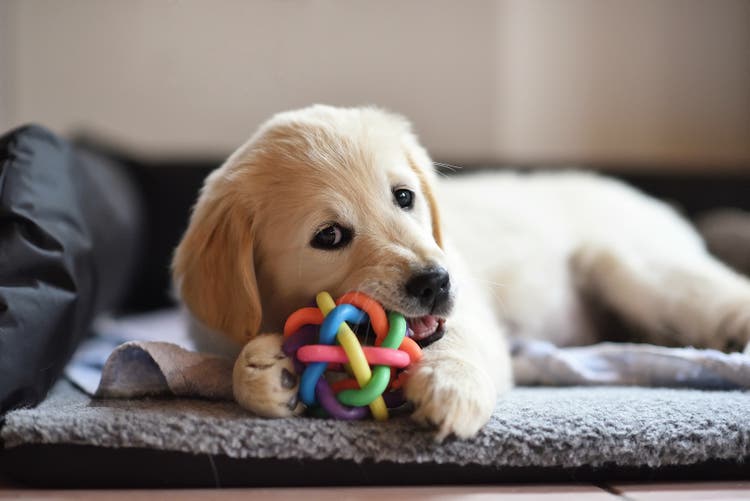
Puppy Parenting: Our Downloadable Guide
New puppy? Whether this is your first go-round or your fifth, we know that so much goes in to raising healthy, happy pups. Check out our free guide, also available to download!
